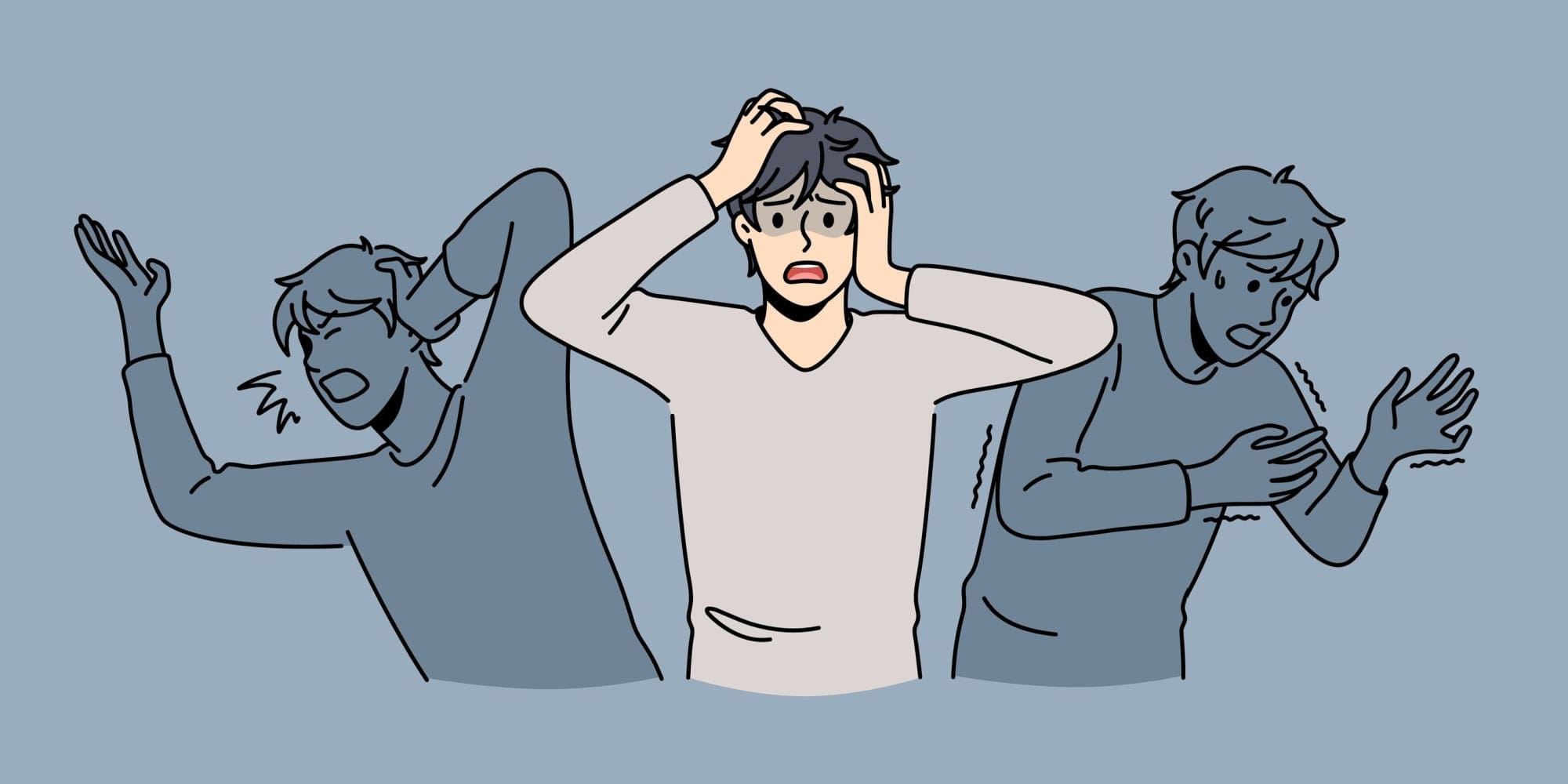If you’ve ever had a panic attack before, you know that they can be intense episodes of anxiety that present with both physical and emotional symptoms. Panic attacks can feel incredibly frightening for the people experiencing them. But this leaves us with the question: Are panic attacks dangerous?
In truth, the answer to this is multifaceted and will require a bit more explanation. Let’s look closer at what exactly panic attacks do to the body, the mind, and your environment so that you better understand just how these attacks can affect you. From there, we will explore treatment options so that you can be better prepared to decrease the potential danger that might pop up with future panic attacks.
Contents
What Are Common Panic Attack Symptoms?

Have you ever had a panic attack? If so, you might be wondering, “Are panic attacks dangerous?” This is because the symptoms of a panic attack can be so severe that, in some cases, people feel as though they are going through a life-threatening experience.
One of the defining characteristics of panic attacks is that they happen suddenly and seemingly out of nowhere. This makes them different from anxiety attacks. Repeated anxiety attacks can be an indication of another mental health disorder.
Similarly, when somebody has recurring panic attacks, they might have a panic disorder that requires professional treatment. Panic attacks don’t always stem from a mood or anxiety disorder, but having mental health struggles such as these increases the likelihood of having a panic attack or developing a panic disorder.
Panic attacks can also occur as the result of an emotional, environmental, or sensory trigger. In some instances, like with people who also have post-traumatic stress disorder (PTSD), even just a memory can bring on a panic attack.
Common physical symptoms of a panic attack include:
- Tightness in chest
- Rapid heartbeat
- Nausea
- Sweating
- Dizziness
- Shaking
Emotional symptoms frequently accompany these physical sensations. During a panic attack, you might feel out of control, as though your mind and body aren’t connected. You might also feel intense fear and, as the name suggests, panic. The fight-or-flight instinct might also kick in and propel you to take action.
Panic attacks don’t usually last that long. On average, panic attacks can last for 5 to 20 minutes. Occasionally, the symptoms linger and the attack can go on for an hour or more. But no matter how long the panic attack is, these symptoms go to show that these episodes can be quite disruptive—but are panic attacks dangerous, or just demanding?
Are Panic Attacks Dangerous?
The answer to the question “Are panic attacks dangerous?” is more complicated than “yes” or “no.” As discussed above, panic attacks are temporary. They also exaggerate feelings of fear and impending doom, though it’s important to remember that these feelings do not reflect reality. In most cases, the danger someone perceives themself to be in during a panic attack is not real.
However, it is also important to acknowledge the potential complications that can arise from the physical symptoms of a panic attack. For example, panic attacks can make it challenging to breathe in a slow, controlled way. This can lead to hyperventilating, dizziness, loss of consciousness, or more extreme bodily reactions.
The Situational Dangers of Panic Attacks


Furthermore, panic attacks can affect someone cognitively. It can be extremely hard to think straight during (and after) a panic attack. In turn, this can cause a person to react in ways that they normally wouldn’t.
For instance, if somebody had a panic attack in a crowded space, they might freeze, even if this means that other people need to move around them. This could be dangerous if the person having the panic attack is in an environment that is not particularly safe, like a busy road or a gathering at a concert.
Thus, if you are in a situation where you need to have a clear head but a panic attack disrupts you, it has the potential to be dangerous. As another example, imagine that you are driving on the highway going at least 60 miles per hour. All of a sudden, you feel the symptoms of a panic attack begin to creep in. This is when you might wonder, “Are panic attacks dangerous?” And in this case, the answer is more likely to be “yes.”
In this scenario, the symptoms you are experiencing might impair your ability to see, hear, and think. This means that whatever primary task you are completing—in this case, driving from one location to the next—might need to be postponed until you are in a more stable state of mind as a way to keep you safe.
What Can You Do During Panic Attack?
There are other techniques you can utilize during a panic attack to keep the answer to “Are panic attacks dangerous?” as close to “no” as possible. For example, breathing slowly and deeply is one of the best ways to calm the nervous system. Additionally, sometimes shocking the system by drinking something cold or dipping your face in ice water can help to get you out of a panicked state.
Ultimately, the most effective way to make panic attacks less dangerous and disruptive is to stop them before they begin. Taking preventative action can help to calm the body and mind well in advance so that you do not have that fight-or-flight moment. This is especially true for people who have a panic disorder in which they have repeated panic attacks.
The only way to do this effectively is to receive treatment for panic attacks. Having an untreated panic disorder can leave you feeling uneasy all the time. In fact, feeling anxious about having another panic attack is one of the signs of a panic disorder. In many cases, this leads to people avoiding certain things to protect themselves from an unexpected panic attack.
But rather than isolating yourself and waiting for the next moment of panic to strike, there are treatment programs out there that can help you combat these symptoms and stay safe.
Where Can You Go to Treat Panic Attacks?
Port St. Lucie Hospital is a treatment facility that can help you recover from a panic disorder as well as any other mental health struggles. We offer many different treatment opportunities for recurring panic attacks and other symptoms with services such as:
- Medication management and evaluation
- Individualized counseling sessions
- Group sessions
- Family education
- Art, music, and recreational therapies
- And more
After treatment, you won’t have to ask, “Are panic attacks dangerous?” because you will have the skills you need to get through even the hardest of moments, one breath at a time. For more information on how Port St. Lucie Hospital can help you, give us a call at (772) 238-7734 or fill out a confidential contact form with your inquiries. Take control of your panic by getting treatment today.



























